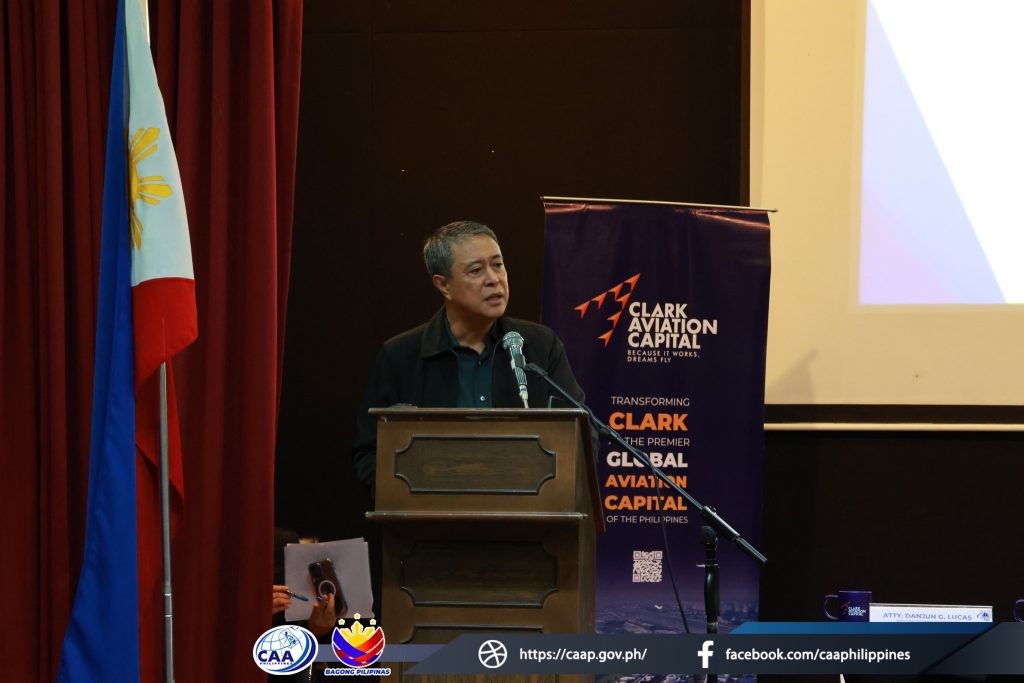A collaborative effort to shape the future of aviation in the Philippines took flight on Friday, 13 June 2025, as officials from the Civil Aviation Authority of the Philippines (CAAP), CIAC – Clark International Airport Corporation, and the Philippine State College of Aeronautics (PhilSCA) convened at the Civil Aviation Training Center in Pasay City for the ceremonial signing of a Memorandum of Understanding (MOU) set to establish the Clark International Aviation Campus.
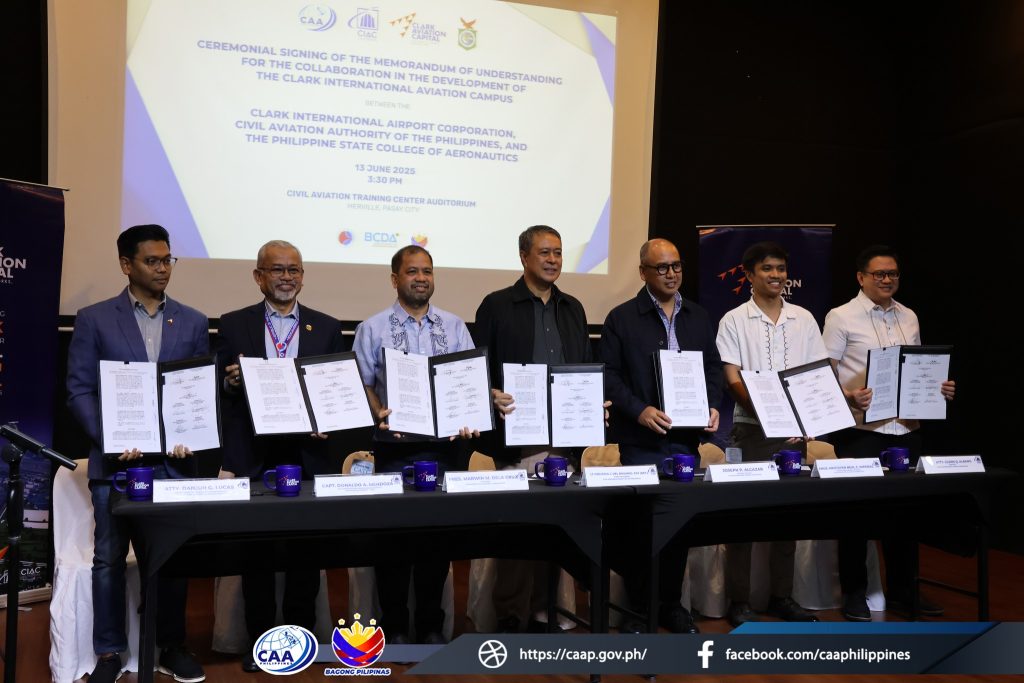
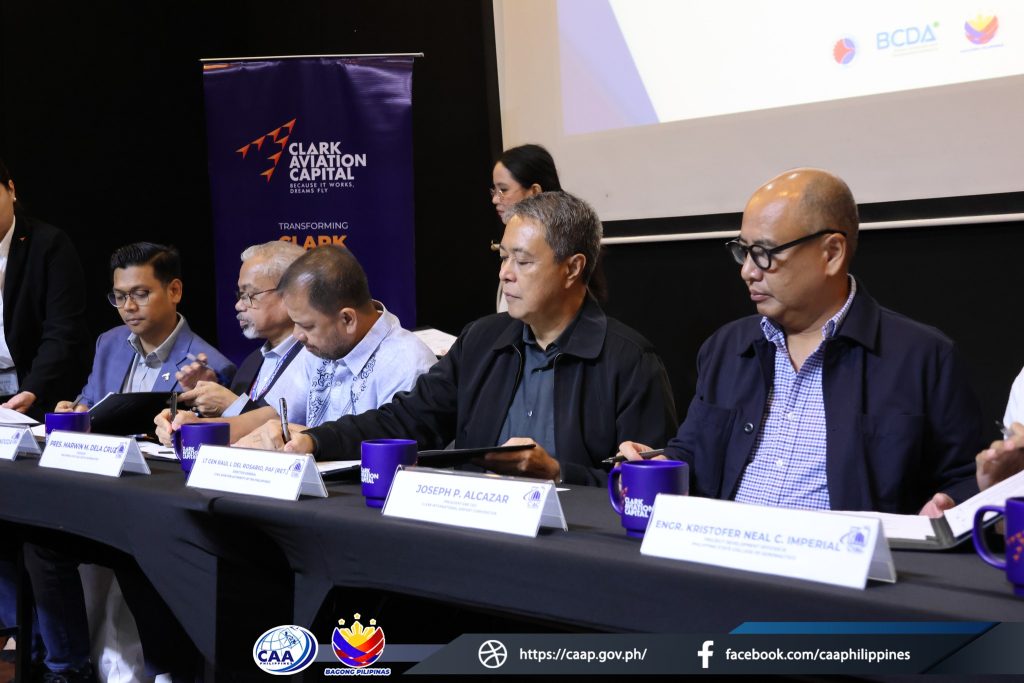
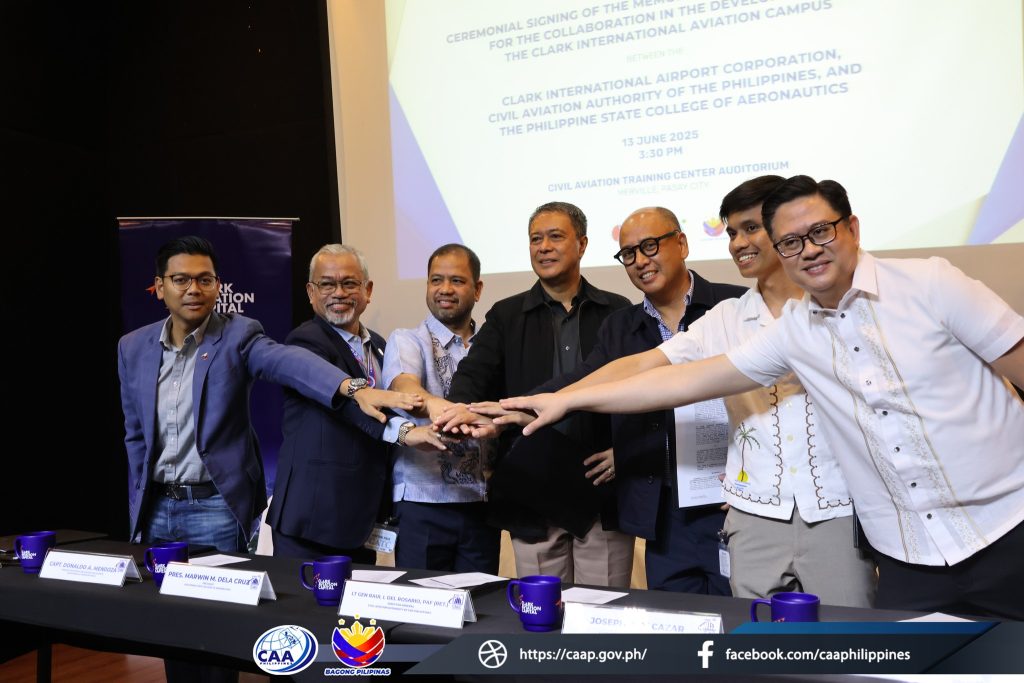
This formalized partnership represents a significant step toward establishing a cutting-edge and responsive aviation education and training center in the country under the Clark Aviation Capital flagship projects. The initiative directly supports President Ferdinand “Bongbong” Marcos Jr.’s vision for an enhanced Philippine aviation sector, focusing on providing adequate hubs for quality education and training.
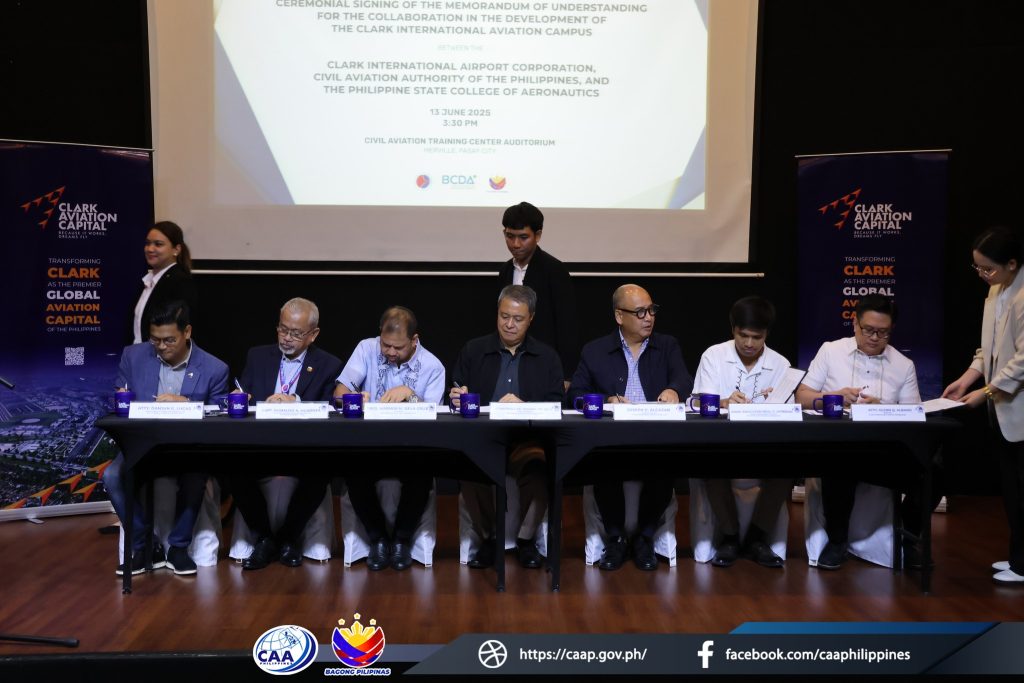
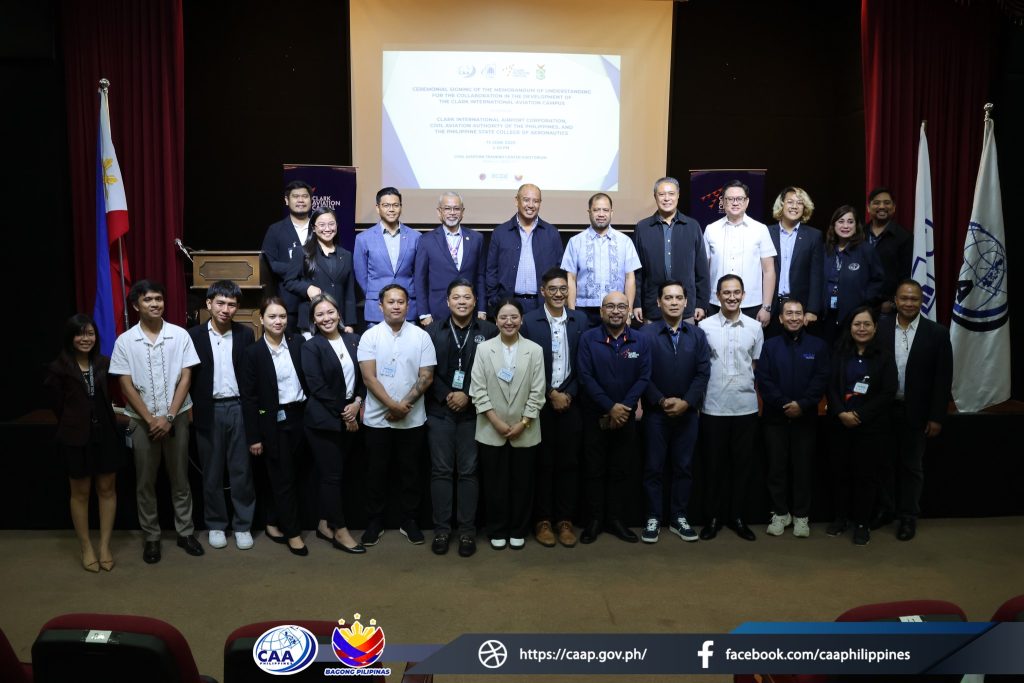
With its upcoming location near Clark International Airport’s infrastructure and active operations, the CIAC-led project is set to offer students invaluable hands-on experience and direct immersion in real-world aviation.
Key figures from the aviation sector were present during the signing, among them Department of Transportation (DOTr) Assistant Secretary for Aviation and Airports Capt. Donaldo A. Mendoza, CAAP Director General Lieutenant General Raul L Del Rosario AFP (Ret), CAAP Deputy Director General for Administration Atty. Danjun G. Lucas, CIAC President and CEO Mr. Joseph P. Alcazar, CIAC Director Atty. Glenn Q. Albano, PhilSCA President Prof. Marwin M. Dela Cruz, and Engr. Kristofer Neal C. Imperial.

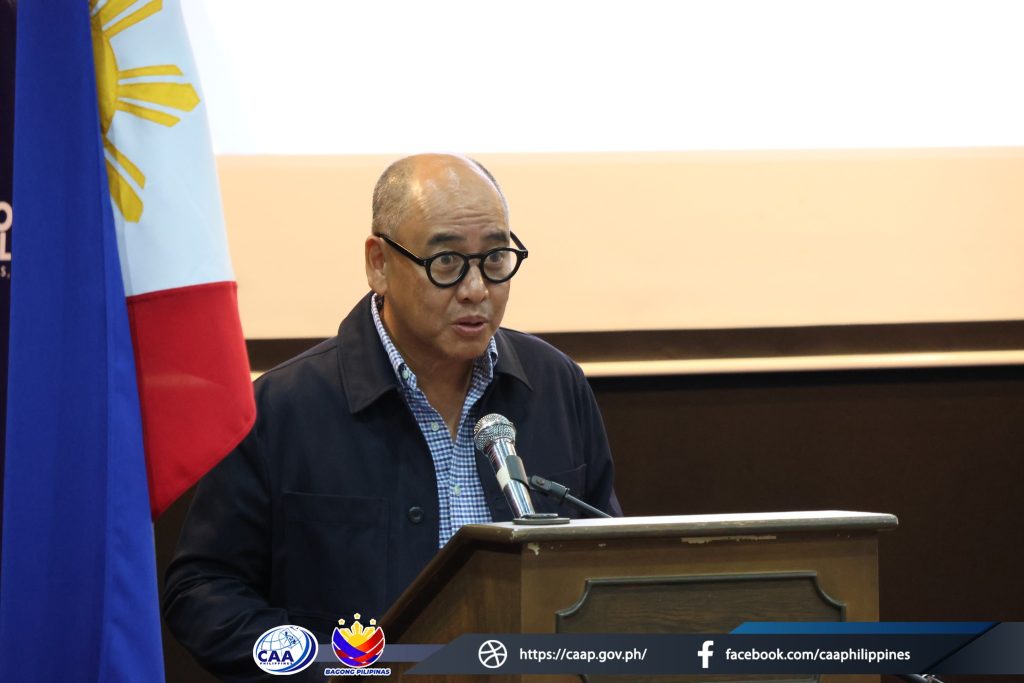
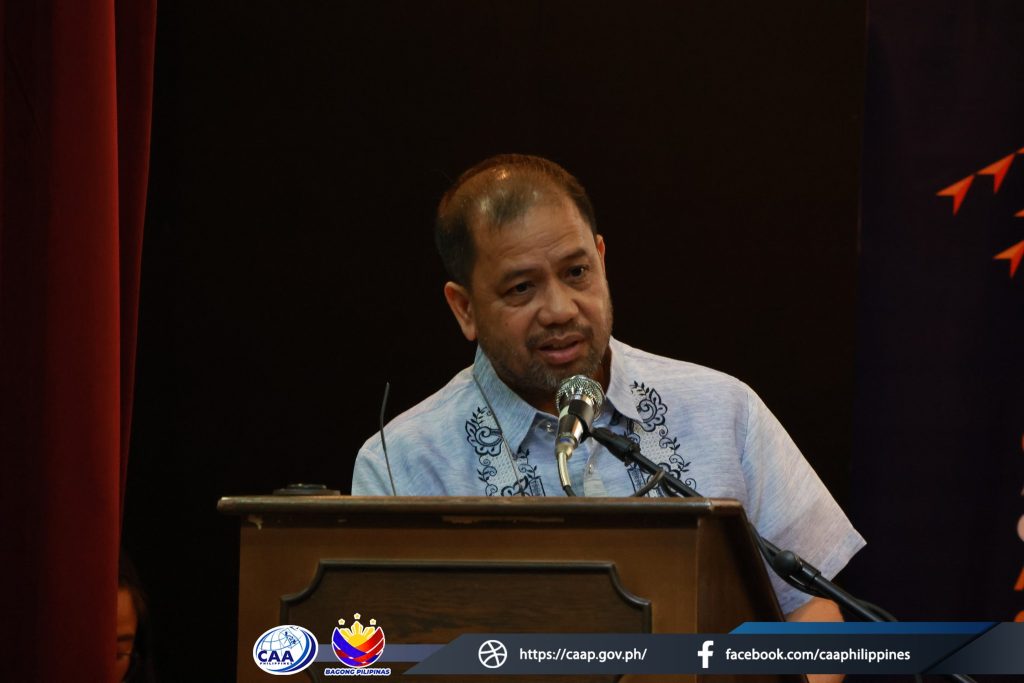
During his keynote address, Director General Del Rosario conveyed his profound enthusiasm for the undertaking, stating, “This MOU is just a beginning of a shared commitment to build a future, where Philippine Aviation soars even higher, guided by the principles of excellence, safety, and service.”
With this new undertaking, CAAP will endeavor to provide comprehensive technical support and assistance to the CIAC, and improve regulations and frameworks essential for the project’s successful implementation.
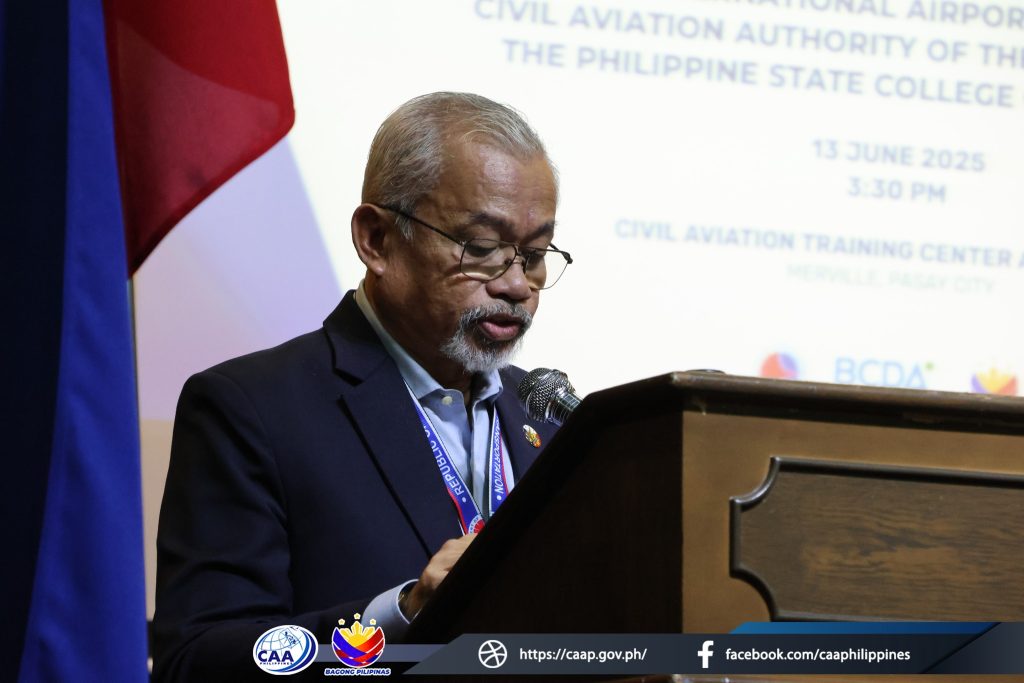
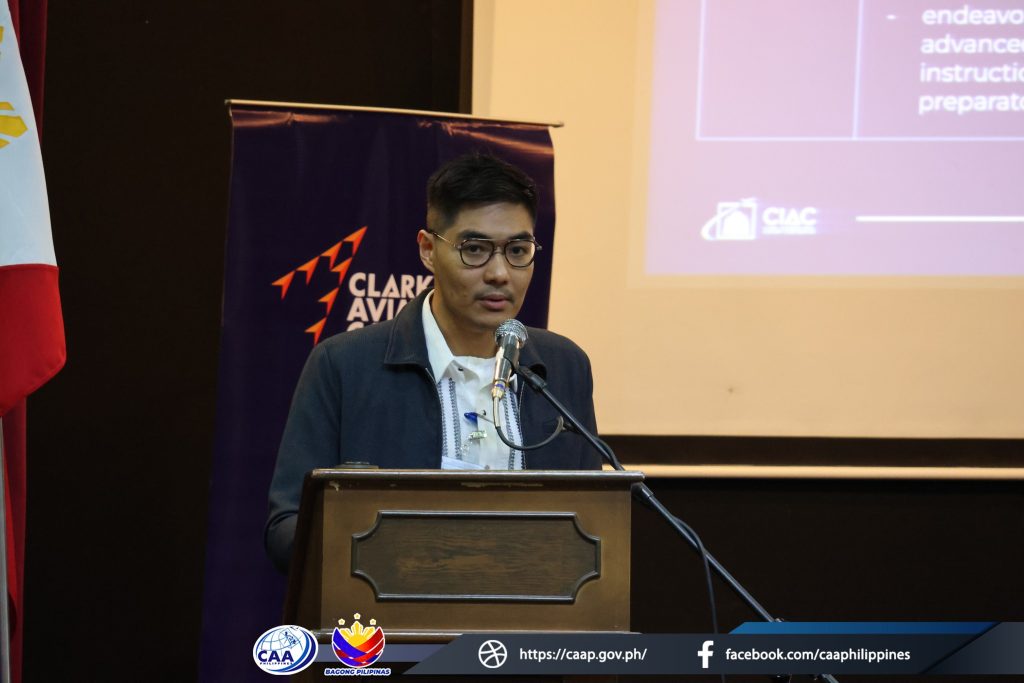
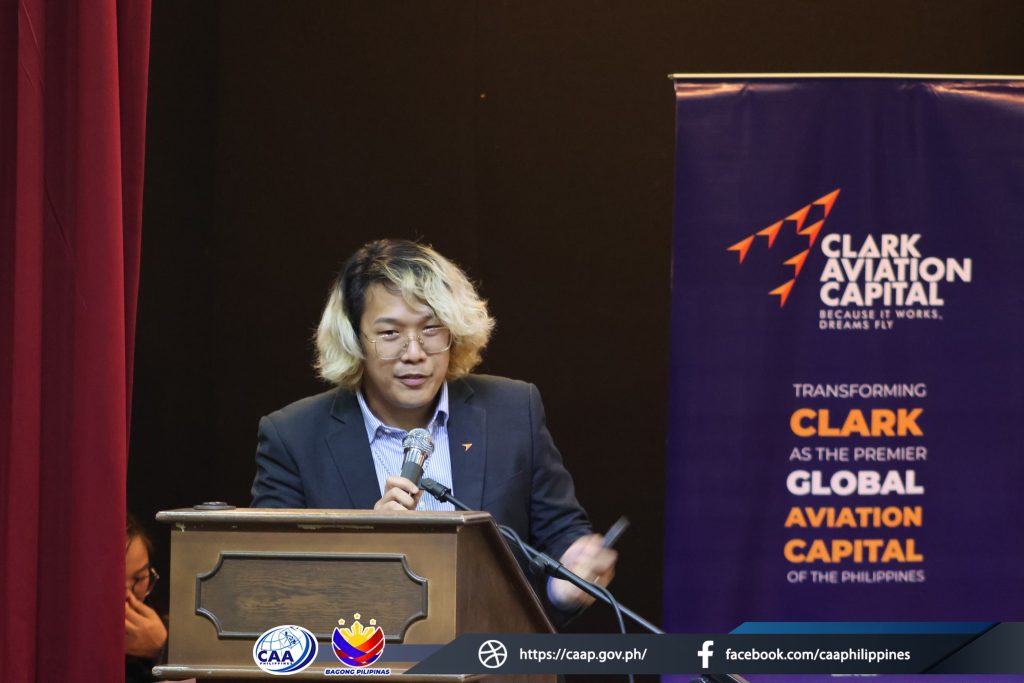
This collaborative effort highlights the productive partnership between government agencies and academic institutions in national development. The MOU is a crucial step in making the Philippines a top center for aviation, ensuring a steady stream of skilled professionals to support the continuous expansion and modernization of the aviation industry.
